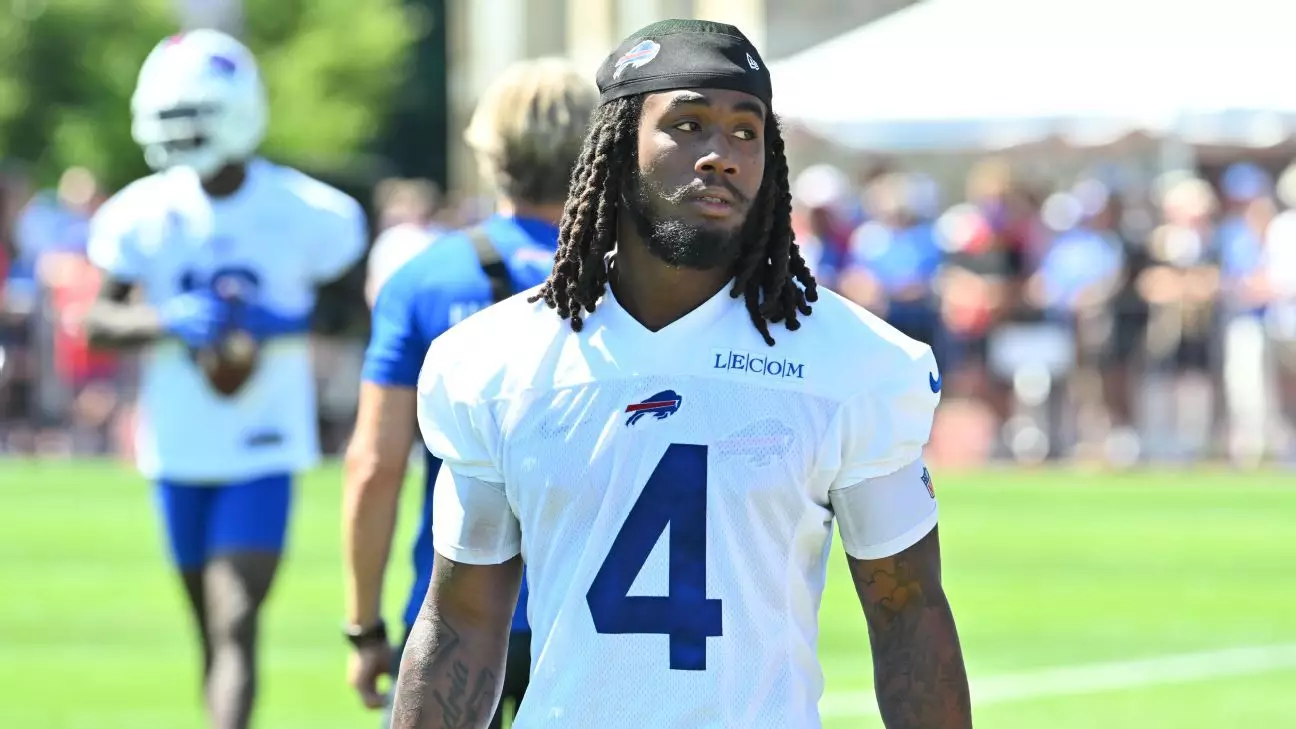In the high-stakes environment of professional football, players like James Cook are increasingly asserting their worth, not just through on-field performance but via strategic and unapologetic negotiations off the field. Cook’s recent actions reflect a shift from traditional silent perseverance to visible advocacy for financial acknowledgment. By openly expressing his desire for a $15 million annual salary, he signals a desire to challenge the status quo and leverage his performance for deserved recognition. This stance is not merely about money; it’s a fight for respect, a declaration that his contribution warrants top-tier compensation.
His bold Instagram post and explicit salary aspirations have ignited a nuanced debate about how the league values its players. Historically, NFL contracts have often been shaped by negotiations and cap constraints, yet Cook’s approach embodies a new generation of athlete activism—merging social media with contract talks. This tactic, while risky, can be effective in capturing the team’s attention and signaling his serious intent. However, it also raises questions about long-term team harmony and whether such displays might be viewed as distraction or disruption.
The tension between Cook’s ambitions and the Bills’ organizational constraints highlights a fundamental conflict between individual ambitions and team-building priorities. General Manager Brandon Beane’s comments suggest a measure of admiration for Cook but also underscore the challenges of fitting a lucrative extension within a limited salary cap. This tug-of-war often leaves players feeling undervalued and teams cautious of over-committing to a single asset in a league where flexibility is crucial.
The Implications of Social Media and Player Empowerment
Cook’s decision to go public with his salary desires signals a broader cultural shift among NFL players. Gone are the days when athletes would quietly accept negotiations and hope for the best. Now, social media serves as both a platform for advocacy and a tool for public relations. Cook’s stance demonstrates a belief that visibility can influence negotiations, especially when a player believes he has proven his worth through increasing productivity and consistency.
Yet, this approach is not without peril. Publicly declaring a target salary can put pressure on management but also risks alienating team officials if perceived as arrogance or entitlement. It’s a delicate balance—players want to be respected and valued, but they must also navigate the reality of franchise limitations and ownership politics. The fact that Cook remains optimistic about reaching a deal speaks to his confidence, but also to his understanding of the game’s politics.
Furthermore, this approach reflects a broader trend of player empowerment in the league. Players are increasingly aware of their market value and refuse to accept subpar compensation relative to their impact. Cook’s vocal stance pushes this narrative, emphasizing that performance on the field should translate into financial reward. This mindset will likely influence negotiations across the league, encouraging players to be more outspoken in asserting their worth.
The Broader Context: Building a Contender or Corresponding to Reality?
From a team perspective, the Bills face a complex calculus. They have invested in Cook’s talent and see him as an integral part of their offense, especially considering his breakout season. However, team cap strategies require balancing long-term commitments against immediate needs and future flexibility. Beane’s mention of the desire “to draft, develop, re-sign our own” encapsulates this philosophy—preferably signing players who embody the team’s culture and who are within financial reach.
The reality, however, is that the NFL’s financial landscape often leaves players in a standoff—players like Cook hold the leverage of performance, but teams hold the leverage of cap space. The fact that Cook missed voluntary offseason activities but participated fully in mandatory minicamp exemplifies a strategic stance—showing commitment but asserting that his value is non-negotiable.
Ultimately, whether or not Cook’s contract will be finalized remains uncertain. His readiness to participate on the field reflects professionalism and dedication, but it also underscores his understanding that his value must be recognized in tangible terms. As the season approaches, it becomes clear that this negotiation isn’t solely about numbers; it’s about a player fighting to be appreciated and rewarded appropriately in a league where talent alone often isn’t enough to secure top-tier contracts. His pursuit of what he believes he deserves will serve as a precedent, perhaps inspiring others to fight for fairness in an often unforgiving financial landscape.

